30 Great Ways to Avoid the Freshman 15 and Stay in Shape
By Gabrielle Kratsas

Oh, the dreaded freshman 15. Although many relate this phenomenon to female first-year college students, the freshman 15 weight gain can happen to anyone.
According to Dr. Connie Diekman, MEd, RD, most young women switch to an adult metabolism around the time they start college; however, they’re typically able to balance diet with exercise enough by their senior year that they cycle back to the weight they were when they entered college. Men, on the other hand, don’t physically mature until later, causing them to weigh more at graduation, said Dr. Diekman in an interview with WebMD.
The 15-pound gain is also just an average, and that average used to be just 10 pounds. Some students gain much more than that, and some don’t gain weight at all. “The challenge is really learning how to incorporate healthy eating and exercise into a schedule that is very demanding,” said Dr. Diekman.
But with the combination of these bodily changes, busy schedules and the freedom to eat and drink whatever whenever, it’s no surprise that there are countless resources online with tips on how to avoid putting on the pounds in college.
Lucky for you, we’ve gathered the best advice and posted it right here. The following list was compiled using information from several reputable sources, such as WebMD, Ace Fitness and freshman15.com.
30. Snack around the clock.

“Eating snacks or mini-meals after every three or four hours can help avoid bingeing,” said Dr. Diekman.
But the emphasis is on “mini” when it comes to eating more often every day. You wouldn’t replace two or three meals with several meals of the same size to lose weight.
The sole act of eating increases your basal metabolic rate (BMR)—the number of calories you’re burning while your body is at rest. So, the more often you snack, the higher you raise your BMR. The New England Journal of Medicine published a study proving that snacking leads to weight loss. In the study, participants ate 17 small snacks daily, and lowered their cholesterol and insulin levels within just two weeks, decreasing their risk of weight gain.
The challenge, especially for college students, is choosing snacks for their health value rather than convenience.
29. But don’t forget breakfast

It’s the most important meal of the day!
In a study published in The American Society of Nutritional Sciences’ Journal of Nutrition, researchers found that breakfast calories are more filling and satisfying than calories eaten later in the day, which led to lower calorie consumption overall.
According to Ace Fitness, “Studies show that weight gain is more common among those who skip breakfast.” If you skip that first meal, you’re more likely to become famished later, leading to overeating.
Furthermore, CalorieKing explains that eating breakfast also boosts your brain activity. “A good breakfast provides the blood sugar boost necessary for formulating the memory-boosting neurotransmitter acetylcholine.”
28. Stock your dorm with healthy snacks.
By stocking up on foods like fresh fruits and vegetables, granola bars, trail mixes, etc., you’ll become less likely to binge eat the unhealthy alternatives.
And with all of this great food in your dorm or apartment, you can pack a few snacks to munch on in class throughout the day. This should help keep you away from the fast foods, vending machines and campus convenience stores as well as save some money.
To help you out with healthier and easier snackage ideas, check out this list with numerous nutritional options from The Center For Eating Disorders.
27. Realize the reality of alcohol

Each beer can average about 150 calories. Drink about five or six of those and you’re quickly approaching 1,000 calories of a substance that does absolutely no good for your health. Add the typical late night drunk munchies binge, and you have a great recipe for weight gain. According to Ace Fitness, 3,500 calories equals to about one pound of fat.
You also need to take into account the effects a night of drinking has on the following day. Some people feel the effects of a hangover for a full 24 hours, and a trip to the gym isn’t often the first thing on your mind when you feel like crap.
Many students won’t give up the social scene that comes with a night of drinking. So, a great way to combat the inevitable weight gain that comes with alcohol would be to plan ahead. When you know you’ll be heading out for the night, try to fit in some extra time and harder work at the gym.
26. Don’t eat less to drink more.
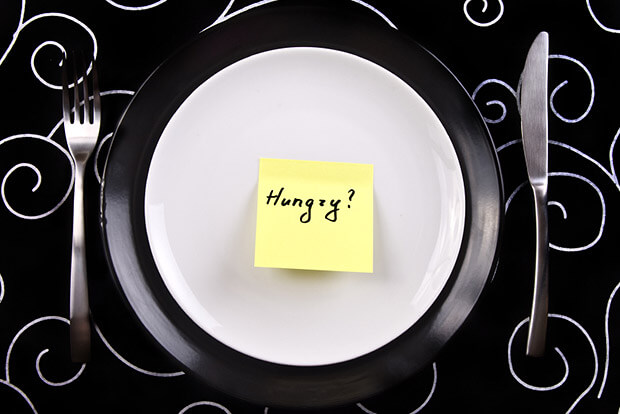
If you eat less during the day, you can get away with drinking more alcohol at night, right? Wrong.
Not only does drinking on an empty stomach quicken the effect alcohol has on you, but that rapid effect drops your blood sugar and triggers your hunger. That, combined with your lowered inhibitions, will most likely lead you to eat as many or more calories than you would have if you had eaten throughout the day.
25. Staying in shape is always better with a buddy or two.
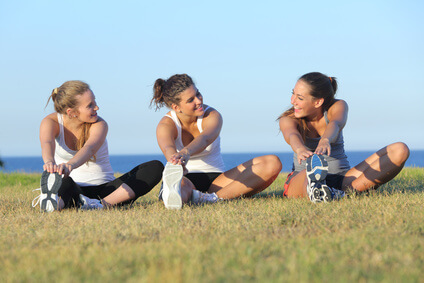
Unless you’re a naturally motivated individual, having a workout buddy to remind you of your fitness goals is a great way to keep you in check. Whether he or she is a roommate, a classmate or someone who follows a similar schedule as you, you’re chances of sticking to a fitness plan significantly increase when you have someone to do it with you, according to FITDAY.
Your workout time will seem to fly by, you won’t cancel a trip to the gym and the two of you can coordinate your hectic student schedules. Having a friend by your side is also a wonderful motivation booster. Your buddy will work as an outside perspective of what you need to work on, and what you’re doing well with. There’s also that celebratory night out the two of you can plan after every few weeks of progress.
24. Don’t follow the fad diets.
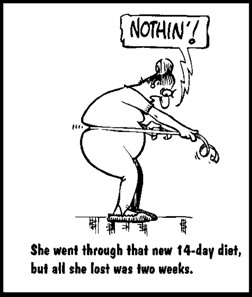
Fads like the cabbage soup diet, the lemonade diet and the sleeping beauty diet will ensure that you lose a certain number of pounds within just a few weeks, and more often than not, they’re right. But that doesn’t mean that they’re healthy or reasonable, and it definitely doesn’t mean that you’ll keep off the weight.
“Most fad diets go something like this: Take a few foods, give them ‘magic’ power, and set a plan to convince people that eating this way and only this way will promote weight loss,” says Alexandra Caspero, RD, a nutritionist in an interview with Health.com. But while most of these quick fixes will help you lose weight, most fad dieters can’t—and shouldn’t—keep up with the diet for good, and they ultimately gain back all of the weight they lost and sometimes more.
“Go to reputable sites for good nutritional information, and do not believe the fast, quick, and easy way to drop 5 pounds,” said Dr. Diekman.
23. Join sports clubs.

Most schools offer intramural, club and recreational sports teams as well as their varsity teams. But you don’t need to be a college athlete on a scholarship to play. Typically, you don’t even need to play in order to practice and train with the team.
Many of these lower-tier sports clubs are not very demanding, and if you only want to participate in a practice here and there, they’ll usually only ask for a once-annual club fee of about $20. Even more, most of these clubs will welcome you regardless of whether you’ve ever played their sport before in your life.
For one specific example, the University of Maryland’s Terps Boxing Club allows anyone to join; they only ask that you come wearing comfortable clothing. All equipment—gloves, mits, bags, etc.—is available in the gym where practice is held, and they’ll split club members up so that they can properly accommodate anyone who is new to the sport.
By joining clubs like this, you automatically gain a great, regulated workout and tons of new workout buddies.
22. Boost your metabolism.

You’re not the little kid you used to be, eating mass quantities of food and not seeing any negative results for it. But there are dangerous, unnatural ways to boost your metabolism, and there are more-natural ways of going about it. The following are a couple examples from WebMD:
For larger meals, replace some of your carbs with lean meats, fish, nuts and other forms of protein. Your body burns many more calories digesting protein than it does fats and carbs.
Aerobic exercise can boost your metabolism for hours after the workout, according to WebMD. The more intense the workout, the more your resting metabolic rate rises.
21. Drink water.

All day, every day.
Water is not a direct weight-loss supplement, but your body needs it to keep running properly. Since water is necessary in order for your body to process calories, the slightest bit of dehydration will slow down your metabolism. It also helps to eat fresh fruits and vegetables, which already contain a bit of water.
The best thing you can do is carry a reusable water bottle with you throughout your class schedule. Not only does drinking water keep you from experiencing other nasty side effects of dehydration like headaches and fatigue, but it also makes you feel fuller. WebMD suggests drinking a full glass of water before eating a meal or snack to both aid your metabolism and prevent you from overeating.
20. You can eat pizza, but eat the salad first.
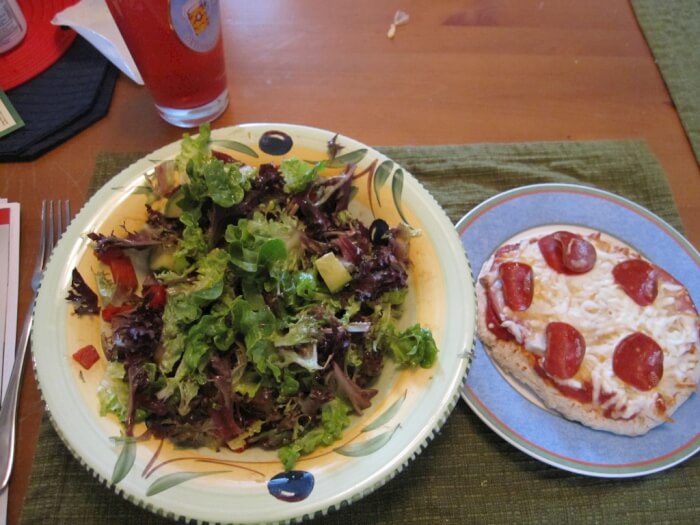
Nothing beats a late-night study pizza. But eating pizza and late at night are both problematic when it comes to avoiding the freshman 15.
However, one helpful hint is to order a salad as well, and eat that first. That way, you’ll be less prone to eating half of the pie.
19. Sharing is caring as well as beneficial.

For many students, their social lives play a major role in your college experience. Enhance those social interactions while simultaneously avoiding a late-night pizza binge by sharing that pie. It’ll cost less when split among friends, you’ll eat less and everyone will be happier for it.
Eating alone in general can have negative outcomes, according to Dr. Diekman. “Participate with friends, don’t isolate,” she said. “Because isolation leads to disordered eating.”
18. Build more muscle.
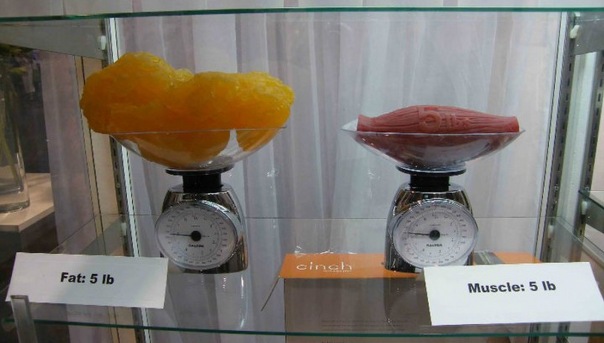
Muscle does not weigh more than fat, it just takes up less room in your body. Obviously, one pound of muscle weighs the same as one pound of fat; however, that muscle will take up less than half of the room in your body than that fat will.
Building more muscle also boosts your BMR. For every pound of muscle, you burn about six calories a day by simply existing, according to WebMD. For every pound of fat, you’re only burning two calories a day.
17. Get your beauty rest.

The massive load of school work and nights out can easily cut the amount of sleep you need each night in half, if you let it. And a disrupted sleep pattern can lead you into a vicious cycle of weight gain.
When you’re tired, you’re more likely to reach for those sugary drinks and comfort snacks for a quick boost of energy, and you won’t be inclined to exercise when you’re tired. To make matters worse, sleep deprivation disrupts your metabolism, and it will not function properly. By the end of the day, your poor food choices and lack of physical activity actually make it more difficult to get back to sleep.
Your hormones also play an impact when it comes to sleep and the freshman 15. In an interview with WebMD, Dr. Michael Breus, author of Beauty Sleep, explained that when sleep deprived, we have an imbalance between hormones ghrelin and leptin, causing us to eat more.
“Ghrelin is the ‘go’ hormone that tells you when to eat, and when you are sleep-deprived, you have more ghrelin,” Breus says. “Leptin is the hormone that tells you to stop eating, and when you are sleep deprived, you have less leptin.” He suggests you get 7.5 hours of sleep, but other sources say you can get away with six.
16. Sleep smart and sound.

In order to better manage your sleep, stick to the 6-to 8-hour solid night of sound sleeping. That means, try not to sleep in or nap too much. According to WebMD, “One recent study showed that people who slept for nine or 10 hours every night were 21% more likely to become obese over a six-year period than were people who slept between seven and eight hours.”
You should also avoid exercising, watching TV, listening to loud music or staring at your phone or laptop screens before bed. The light of the screens mimics daylight and convinces your brain that it’s daytime. It also suppresses production of the brain chemical melatonin, which helps you sleep.
15. Manage your stress.

Now that you’ve moved away from home into entirely new surroundings and have been handed a jam-packed schedule and a boat load of course work, you might be feeling a little stressed. That stress has proven to have an extremely negative effect on your health, both mentally and physically.
“Even if you usually eat well and exercise, chronic high stress can prevent you from losing weight—or even add pounds,” says Dr. Pamela Peeke, author of Body for Life for Women, in an interview with Prevention magazine. Because of a hormonal reaction to high stress levels, your body needs to replenish the energy that is used by your stress, which can continuously make you very hungry. But instead of grabbing for the vegetables, your natural tendencies lead you to the brain-pleasing high-fat foods, which become addicting. The same hormone that’s making you hungry—cortisol—is also encouraging your body to store fat.
Prevention magazine offers a few stress-relieving tips, such as dropping down and doing 10 pushups. When you move your muscles, explained Dr. Shawn Talbott, “It actually fools your body into thinking you’re escaping the source of your stress.”
You should also eat slowly at meals, back off on your caffeine intake and eat a large breakfast; breakfast foods are rich in vitamin B, vitamin C, calcium and magnesium, of which deficiencies can cause more stress to your body. Finally, getting enough sleep is the ultimate stress-reduction technique because sleep deprivation could be the main source of your stress.
14. Everything is OK, in moderation.

To avoid dangerous bingeing and to curb your cravings, always choose moderation over deprivation.
You’re at college, so no one is there to tell you not to eat that cookie or not to swing by that fast food joint, except for you. Many restrictive diets—cough, fad diets, cough—tell you to avoid these bad foods at all costs. But we all know that when no one’s looking, you’ll occasionally slip, and when you do after not having tasted it for so long, you’ll fall into the deep bingeing hole of no return.
This is why many sources, such as the Academy of Nutrition and Dietetics, encourage you not to eliminate any foods from your diet, and eat them in moderation instead. By decreasing your portion size, you can save yourself a lot of calories and stress.
It’s even all right to give into sweet tooth cravings, especially if you’re having a rough day. Allowing yourself just one piece of chocolate—not the whole box—will shut off that freshman 15-aiding hormone, cortisol.
So, go ahead and go get that McDonald’s you’ve been craving. But be sure to get the Happy Meal this time.
13. Give it 20 minutes.
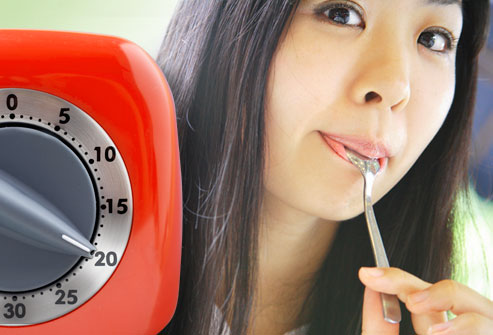
If quickly consume your meal or snack in little or no time, you’ll likely to head back to the kitchen in search for more. That’s because it takes about 20 minutes for your brain and stomach to realize that you’re full.
In a study published in Journal of the American Dietetic Association, researchers found that those who eat slower tend to consume less calories and more water.
So, if you have the time, try to schedule your meal time around 20 to 30 minutes, or trying eating with your non-dominant hand to slow you down. If you’re eating on the go, divide up your food into portions, and only allow yourself to eat more after some time has passed from the first portion.
12. Live actively.

You’re in a college town, so you shouldn’t really need to travel far to get to where you need to go. Try walking through campus or biking if you’re in a hurry instead of driving from place to place. If you have to take a bus, get off a stop or two early and walk the rest of the way.
And unless your apartment is in a skyscraper, ditch the elevator and take the stairs. To really challenge yourself, do this after grocery shopping or a trip to the mall.
You can even make tasks like watching TV into mini calorie burners. During each set of commercials, get down and do some pushups, sit-ups or try to hold a difficult yoga pose. If your roommates laugh, make them join you!
When you stop to think about it, you’ll find several opportunities throughout your daily schedule when you can break a sweat. When you go out at night, get your friends and hit the dance floor.
11. Use all that your school has to offer.

Get your money’s worth, and make it a goal to use the campus gym at least once every week. Organize a pick-up game of basketball or volleyball with friends.
Try checking out the fitness class schedule at the gym. If you try each different kind of class—from cardio kickboxing to yoga—you’re bound to find at least one that you truly enjoy and can fit into your schedule.
Many schools also have great outdoor programs, which plan weekend trips to do things like hiking, kayaking, rock climbing and more. Even if you’ve never done it, grab a friend and try one of these at least once. They’re a great way to get off campus, relieve stress and burn some calories.
10. Get some credits for being healthy.
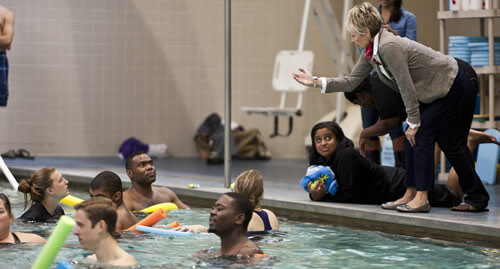
Many schools offer majors like kinesiology (sports science) and public health. Typically, these majors will offer a few activity classes or classes focused on nutrition that even non-majors can take for credit.
The next time registration comes around, look for what classes your school has to offer, and get some real credit for being healthy. You should also ask students who are in these majors about what classes and best and available for you.
9. Take control in the dining hall.
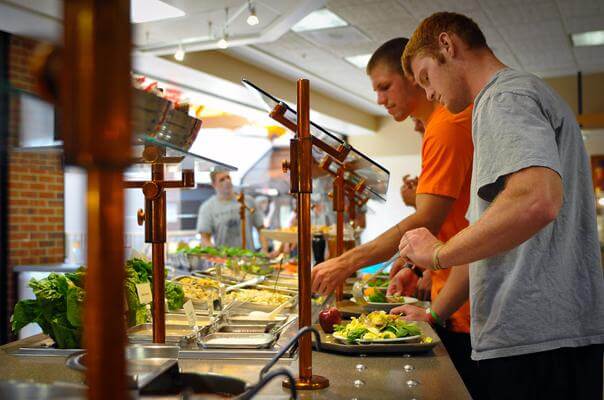
Now that Mom and Dad aren’t covering the nutritional basics in your meals, you’ll need to figure out how to find the right balance while navigating your school’s dining hall.
Look out for fresh vegetables and whole-grain pasta. Take into account the amount of cheese, condiments, meats, beans and nuts you add to your meal. “A dinner plate should comprise two-thirds fruits, vegetables, and whole grains,” said Dr. Diekman.
Also, don’t be afraid to speak up to whoever is making your meal. The dining hall menus don’t always have the healthiest options; don’t be afraid to get picky and ask for a sandwich that isn’t already listed. Request for the sauce on the side, and ask them to load up on the extra veggies. You should also deviate from that combo meal and mix up your side options to achieve a better balance of fruits, vegetables and lean protein.
Finally, it’s a good idea to walk through the cafeteria and first look to see what each station if offering when you go in. Because meals are typically offered on a cycle, eating there can get boring fast. Try picking one small thing from a few different stations.
8. Don’t multitask while you eat.

This goes hand-in-hand with slowing down while you eat.
When you eat while watching TV or studying, you’re not paying attention to what goes in your mouth, and you’re more likely to overeat.
A report published by the American Journal of Clinical Nutrition covered studies on how attention and memory affect food intake. They found that not only did the distracted eaters tend to eat more at that meal, but they also tend to eat more later on.
7. Engage your mind before your mouth.

When you find yourself in the kitchen or rooting around your dorm for food, stop and ask yourself this question: Why am I eating?
Many freshmen are living away from home for the first time, and that can stir up some unpredictable emotions. Heck, your grades, social life and romantic life can stir up these emotions at any time in your college career. And emotions, like stress, can play a huge role in weight gain.
Force yourself to stop and think about whether you’re eating because you’re hungry or because you’re bored, sad, anxious, homesick, etc.
Also, if you’re heading to the dining hall just because your friends wanted to meet up there, decide whether you’re really hungry or not, and maybe stick with a banana instead of the full combo meal.
6. Find out what you’re really eating.

Your campus dining hall is serving up a chicken teriyaki meal for the night, which sounds delicious and doesn’t seem too bad for you. But how was that chicken prepared? What are your options for sides? How many calories is it if you just get the chicken?
Thanks to today’s health-conscious students and the internet, most campus dining services will provide a daily menu with all nutritional details and information available online. Save yourself the time, worry and calories by checking this out before going to grab some grub.
Doing this will also help you make an informed decision, rather than allowing your nose, eyes and empty stomach make the decision for you.
5. Drink your coffee black.

Coffee drinkers, unite!
Not only does this caffeinated life-saver help you stay awake in class, but it can also add a short-term boost to your metabolism, and it can help prevent weight gain. Coffee will also help with your exercise endurance.
“Some studies have shown that drinking coffee with caffeine may slightly increase weight loss or in actuality prevent weight gain by suppressing the appetite or the desire to eat,” says Kathy Taylor, a registered dietitian, in an interview with JillianMichaels.com. “It may also help with calorie burning by stimulating thermogenesis–our body’s way of generating heat from metabolizing food. Ultimately caffeine acts like a diuretic causing us to have water loss so there is a temporary decrease in body weight.”
However, coffee is definitely not a food substitute, and WebMD suggests drinking it in moderation—two or three cups a day, tops—and take it black. Those creams and sugars will only add to the freshman 15.
4. Don’t like coffee? Try some tea.

Drinking green or oolong tea has shown to boost your metabolism for a couple of hours. Two to four cups of this stuff may also push the body to burn 17% more calories during exercise. Research suggests that exercisers who drink green tea lose twice as much weight than those who don’t.
But again, avoid adding sugar or other artificial flavors to your tea. And look for green tea brands that have all natural ingredients and no artificial preservatives.
3. Don’t drink calories.
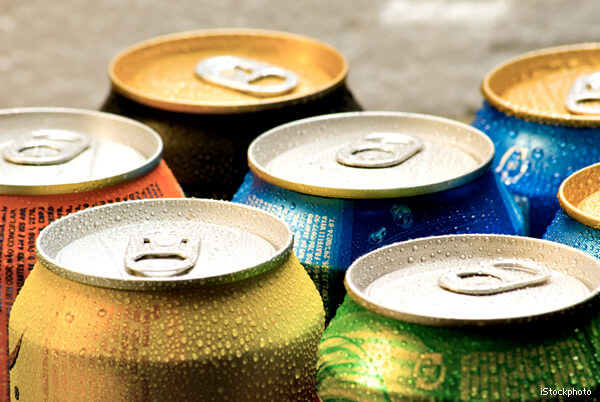
This goes for both alcohol and soda.
As mentioned above, alcohol does absolutely nothing for weight loss. But many students don’t see putting the bottle down as an option. Work around it by drinking a glass of water in between each alcoholic beverage. You should also stick to light beers and mixed drinks that contain regular soft drinks. Opt for the vodka cranberry instead of the vodka sprite.
Soda is also another fattening drink that college students struggle to stay away from because of energy-boosting sugar and the ever-present soda machines at the dining hall and in building hallways. Instead of getting soda with your dining hall meal, bring your reusable water bottle, and refill that. You’ll save dining points along with calories.
For quick energy fixes, try switching over to coffee, tea or less calorie-packed energy supplements like 5 Hour Energy.
2. Curb your social calories.
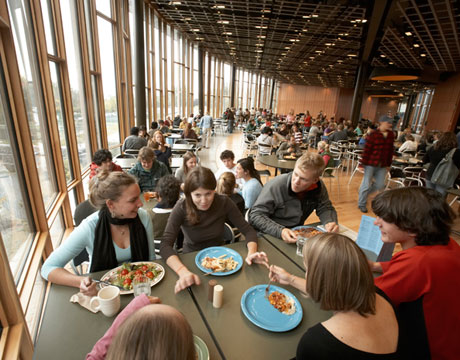
Eating out, whether it’s at the dining hall or a local restaurant, is a popular opportunity for social interactions.
Even if they’ve already eaten, students can feel left out or socially guilty by not taking up an offer to go to the dining hall with friends from the dorm. As a result, they’ll go and eat again.
You need to be able to recognize whether you’re going to get food because you’re hungry or because you’re craving some time with friends. If you ate shortly before going, just let your friends know, and hang out with just a coffee or a piece of fruit. They’ll understand why you’re choosing the banana over the combo meal.
1. Check into your school’s health and wellness center.
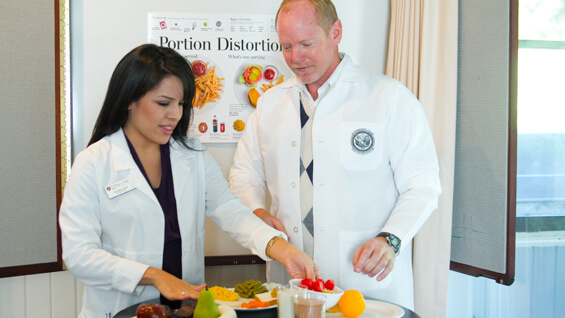
Within most schools’ health centers, you should be able to find a wellness and nutritional wing with dietitians or other trained professionals who are there you help you make the right choices when it comes to eating and exercise. You also may have the chance to interact with other students who are majoring in this area.
Bring them your schedule, and be honest about your current eating and exercise habits. Let them know what you are and are not capable of doing and keeping up with, and they should be able to help you lay out a personalized plan of action to keep you healthy and away from that freshman 15.
Discover more from ReviewFitHealth.com
Subscribe to get the latest posts sent to your email.